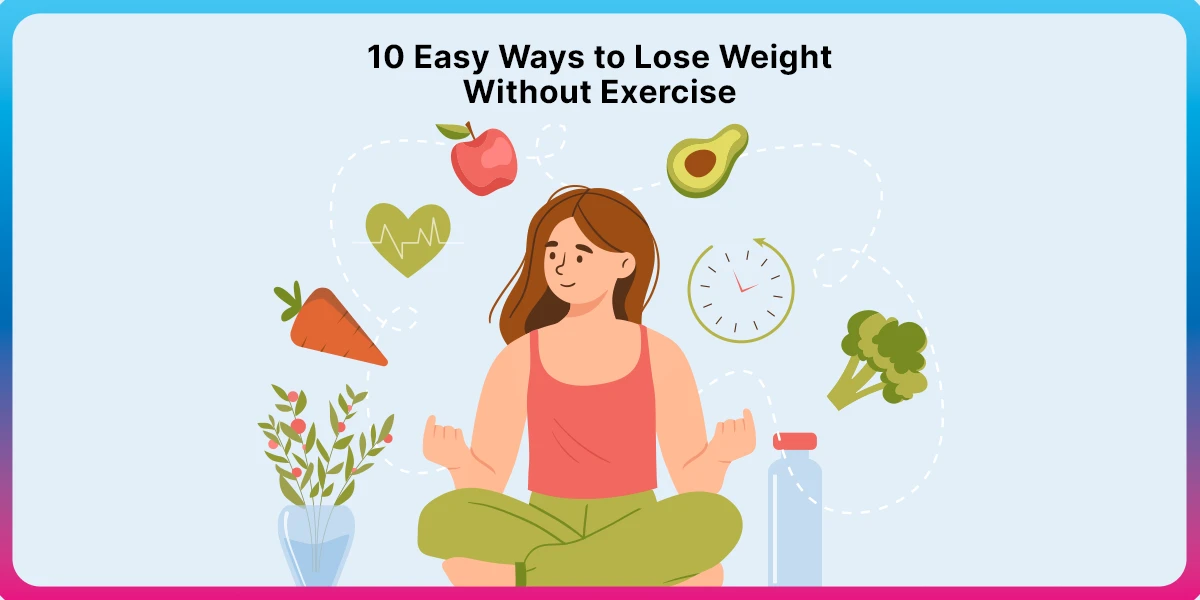How to Control Type 2 Diabetes Without Medication?

If you or a loved one have diabetes, you may have thought about the best way to control type 2 diabetes without medication.
But whether or not this is possible depends from person to person, and from case to case.
In this article, we will take a look at whether or not you can control diabetes without medicines and talk about some of how you can take better care of your diabetes health and keep it under control.
Before you stop any medicine or try to reduce the dosage on your own, speak to your doctor and follow their advice and suggestions.
Can I Control Diabetes Without Medication?
The answer to how to control diabetes without medicine is something that will depend on a variety of factors, the most common being the type of diabetes you have.
| Diabetes Type | Cause | What Happens | How to Manage |
| Type 1 Diabetes | Body doesn’t produce enough insulin. | Without insulin, the body can’t regulate blood sugar, leading to life-threatening condition i.e., diabetes ketoacidosis (DKA). | Must take prescribed insulin. |
| Type 2 Diabetes | Body produces insulin but can’t use it effectively. | Blood sugar levels rise due to insulin resistance and potential decrease in insulin production over time. | Management might include medications to improve insulin action, increase insulin production, and diet/exercise to reduce weight to manage insulin resistance. |
| Gestational Diabetes | Develops during pregnancy due to hormonal changes. | Blood sugar levels may rise, needing more insulin than the body can produce, due to increase in insulin resistance | Most of the GDM, can be managed by, right diet or medical nutrition therapy. Few women might need insulin. |
How to Control or Manage Diabetes Without Medicine?
Managing diabetes with diet and exercise may be possible in some people with type 2 diabetes, especially those who are newly diagnosed without any complications.
Here are a few ways in which you can better manage or control blood sugar levels without medication:
1. Eat Healthy
Opt for whole grains like whole wheat chapatis, millets such as jowar, bajra, and brown rice. Include low-glycemic index foods like green leafy vegetables such as spinach, methi and dal such as moong, masoor.
2. Portion Control
Use a standard size Katori for measuring servings of rice, dal, and vegetables to maintain consistent portions. For example, one Katori of cooked dal and half a Katori of brown rice per meal.
3. Carbs Control
Focus on complex carbs and fiber-rich foods. Limit simple carbs found in sweets and white rice. Instead, choose complex carbs like oats and legumes like moong, chana, moth etc.
4. Balanced Meals
Ensure each meal includes a balance of macronutrients and micronutrient. For example, a thali could include chapati, a portion of dal or lean chicken curry, a serving of mixed vegetable sabzi, and a side of salad or raita.
To know your chances of Diabetes reversal, take the Diabetes Reversal TestDiabetes Reversal
Calculator
5. Regular Exercise
Incorporate activities like yoga, brisk walking in a nearby park, or cycling. Joining a local dance class can be a fun way to stay active.
6. Good Sleep
Create a relaxing bedtime routine, maybe including light stretching or Pranayama (breathing exercises) to improve sleep quality.
7. Monitor Blood Sugar
Regularly checking your blood sugar levels can help you understand how different foods and activities affect your body. Use a glucose monitor and keep a diary of your readings.
8. Consult Your Doctor
Always discuss any lifestyle changes with your healthcare provider, especially when considering adjustments in your diet or exercise routine. Ensure any changes should complement your prescribed diabetes treatment plan.
Please do remember that even if you may be feeling well, or even if your blood sugar levels are within the ideal range, it can be very dangerous to suddenly stop your diabetes medication without consulting your healthcare provider.
How We at Fitterfly Help You?
At Fitterfly, our approach aims to manage diabetes with minimal or no medication, promoting a natural and holistic pathway to better health. We specialize in managing diabetes through personalized lifestyle modifications, focusing on nutrition, fitness, and mental wellness.
With the help of technology like Continuous Glucose Monitoring (CGM) and Personalized Glycemic Response (PGR), we analyze your health data to create a customized program tailored just for you.
But we offer more than just plans. We know how important support and community are for managing diabetes. That’s why we have personal coaching and group meetings.
Here, you can meet and talk with others who are also managing their diabetes well. These meetings let you learn from others and share your own stories, building a friendly and supportive group.
Whether you’re struggling with diabetes management or seeking a consult for diabetes-related health issues, Fitterfly is here to support your journey to wellness with expert guidance and advanced technology solutions.
For more information Fitterfly’s Diabetes Prime Program is perfect for you. Want to learn more? Call us on 08069450746
Reduced diabetes medications in 3 months


6.8%
Happy members
EMI
Guarantee
4.8/5
Diabetes Prime Program
This blog provides general information for educational and informational purposes only and shouldn't be seen as professional advice.
Frequently Asked Questions
What dietary changes can help manage diabetes without medications?
Adopting a diet rich in fiber (like whole grains, pulses, and green leafy vegetables), low in unhealthy fats, and moderate in carbohydrates can significantly help. Include foods with a low glycemic index, such as whole wheat chapatis, brown rice, dal, and plenty of vegetables, to maintain stable blood sugar levels.
Can you cure diabetes without medication?
While there's no cure for diabetes, some cases of type 2 diabetes (especially newly diagnosed) can often be effectively managed and controlled without medication through significant lifestyle changes. This includes a healthy diet, regular physical activity, maintaining a healthy weight, and monitoring blood sugar levels.
How important is it to monitor blood sugar levels when managing diabetes without medications?
It's important to regularly monitor your blood sugar levels to understand how different foods, activities, and stress affect your blood sugar levels. This helps in making informed decisions about diet and lifestyle to better manage diabetes.
Are there any natural supplements or remedies that can aid in managing diabetes without medications?
Some natural supplements like cinnamon, and fenugreek seeds can help you to control blood sugar levels. However, it's important to consult with a healthcare provider before starting any supplement, as they may interact with other conditions or medications.
How can sleep quality and duration affect diabetes management without medications?
Poor sleep can affect blood sugar levels and insulin sensitivity, increasing the risk of type 2 diabetes. Good sleep hygiene, 7-8 hours of quality sleep, supports hormonal balance and helps regulate glucose metabolism. Hence, along with good diet, proper physical activity, good sleep can help to manage diabetes better.
Can quitting smoking contribute to better management of diabetes without medications?
Yes, quitting smoking can improve blood sugar control. Smoking can worsen diabetes complications.
Are there any potential risks or challenges associated with managing diabetes without medications?
Managing diabetes without medication requires strict adherence to lifestyle changes and regular monitoring of blood sugar levels. There's a risk of blood sugar becoming too high or too low, so it's important to consult your healthcare professional.
How often should individuals consult with healthcare professionals when managing diabetes without medications?
Regular check-ups, at least every three to six months, are essential to monitor your progress, adjust dietary and lifestyle recommendations, and ensure no complications are developing. More frequent consultations may be necessary based on individual health needs and blood sugar control.





















